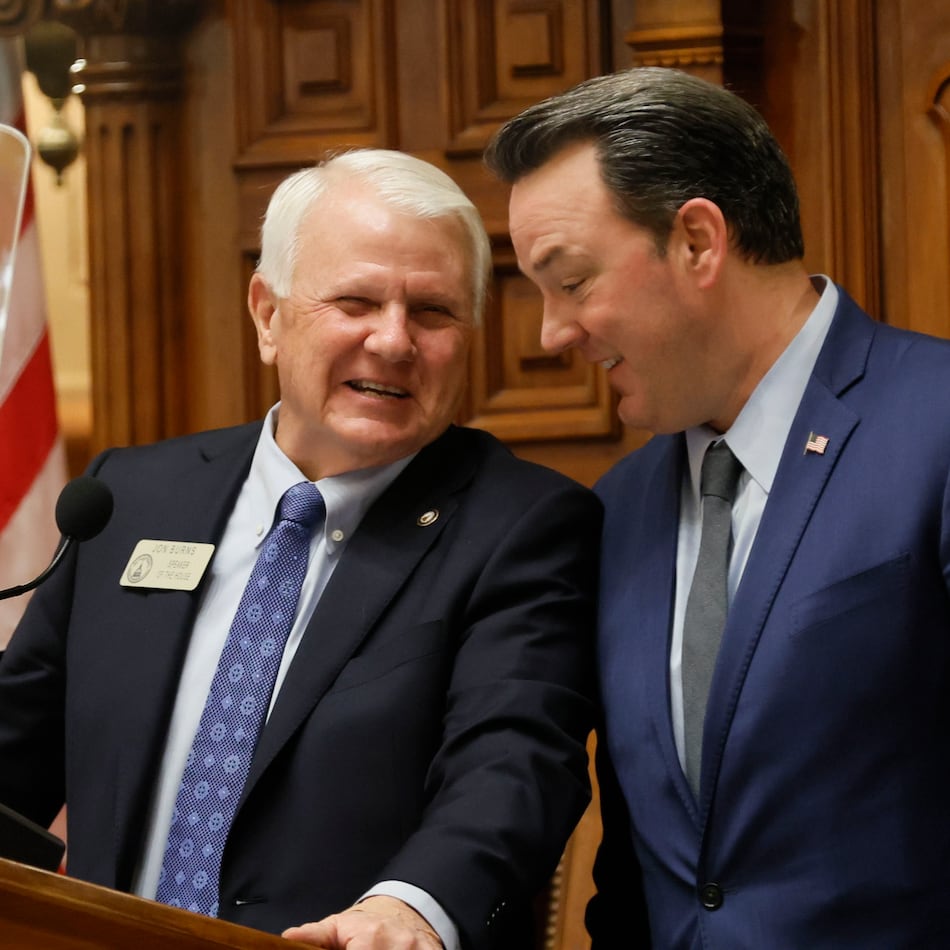Before there was Hank Aaron, there was Ty Cobb, both as a baseball star and as a statue outside the Atlanta Braves’ ballpark.
Hammering Hank, forever frozen in his historic home run back swing, was recently the source of an emotional tug of war between the departing Braves and the soon-to-be baseball-free city.
In the end, the Braves backed away, perhaps not wanting to appear greedy in demanding the statue of a beloved civic figure after already receiving a taxpayer-paid suburban ballpark.
But there has been no civic feud over the statue of the Georgia Peach, who forever will remain captured in a hard slide into a base.
In fact, when the Braves last year listed the statues they wanted to take with them to Cobb County, Cobb (no relation) was the only item left off the inventory. Keisha Lance Bottoms, executive director of the Recreation Authority, which oversees the park and the accompanying effigies, remembers the team’s response.
“They said, ‘That one doesn’t belong to us, y’all can keep it,’” Bottoms said.
Cobb’s statue, dedicated in 1977 outside the old Atlanta-Fulton County Stadium, preceded Aaron’s by five years, said Bob Hope, an Atlanta PR exec who was the Braves marketing guy back in the day.
The Cobb statue was a gift from C & S Bank President Mills Lane, who was the force behind building the stadium in the 1960s and stealing the Braves away from Milwaukee. Hope said the bank president wanted Cobb’s statue to be the first in a collection of Georgia-born athletic greats and initially was against the Alabama-born Aaron being honored there.
Last fall, there was a buzz of news stories about the Braves snubbing Cobb (the ball player, not the county. They love Cobb County). The stories suggested the Braves were leaving Ty behind because his reputation as a mean-spirited cuss and virulent racist. The Braves spokeswoman said they are leaving the statue simply because it's not theirs.
Cobb's reputation for bigotry is embedded so deeply in his legacy that a colleague at the paper mentioned it as an unarguable fact when I brought up the subject. "That old racist," he said, his voice dripping with contempt.
Well, as it turns out, maybe not, according to Charles Leerhsen, author of last year's biography "Ty Cobb: A Terrible Beauty." (Read an excerpt of the book on myajc.com).
Leerhsen, a former Sports Illustrated editor and a self-described liberal Democrat, was surprised to find little primary evidence or contemporary accounts of Cobb’s racial animus. In fact, most stories came after his death in 1961 from a writer who made Cobb out to be a crazed misogynist. After that, other stories of him as a racist grew.
“People racially profiled Cobb because he came from Georgia,” Leerhsen said. “There’s nothing on the record of Cobb saying anything racist. I went into this thinking what I had heard all my life.”
Afterward, he said, “I get push-back, oddly, from the sophisticated, educated crowd who think somehow I’m diminishing racism because I’m talking about the background of this one person, that I’m letting him off the hook.”
Cobb played from 1905 to 1928, all but two seasons in Detroit, and set 90 records, including most career hits and stolen bases and highest career average, the latter of which will likely never be broken.
Leerhsen concedes Cobb was a hothead but he was also a man of letters and a scientific player. "If they really understood history, they'd want that statue very badly," he said of the Braves.
Enter Cobb’s hometown, Royston, Ga., population 2,500. Royston, northeast of Athens, is a friendly town in the middle of nowhere and decades past its heyday. A faded billboard of Cobb rounding the bases greets visitors to the city, as does a sign advertising “Feral hogs processed here.”
Royston Mayor David Jordan, a business professor who came to office with a one-vote majority after a spirited recount, wants to see Cobb sliding in front of the city’s library.
The building was built in the 1950s to be a “shrine” to Cobb before the state ran out of money. Cobb, a millionaire thanks to his investments, did not use his own money to finish the shrine. Instead, he built a hospital — now closed — across the street.
“If no one there wants the statue, we’ll take it,” said Jordan, while taking me on a tour of Royston. “We’re the hometown of Ty Cobb. It belongs here.”
We stop at Cobb’s mausoleum. A young boy playing on the steps asks his gramps, “Was he mean?”
We pass the site of the Cobb home, where his mother killed his father with a shotgun blast. (It was ruled an accident.) The site is now a church parking lot.
Mayor Jordan said he has gotten a runaround in recent months calling the Braves, the Rec Authority, the city of Atlanta and even Cobb County. He never gets decision-makers on the line nor definitive answers. (Director Bottoms is aware of Royston's interest but says no decision has been made.)
We stop at the Ty Cobb Museum, which is attached to a medical building. It’s late on a Friday afternoon and the museum is empty. The display cases hold Cobb’s Shriners fez, his Bible, his shotgun, his batting title medal and bronzed baseball spikes.
“Look,” said museum director Julie Ridgway, part of the never-ending reputation reclamation, “the cleats are not sharpened.”
About the Author
The Latest
Featured


